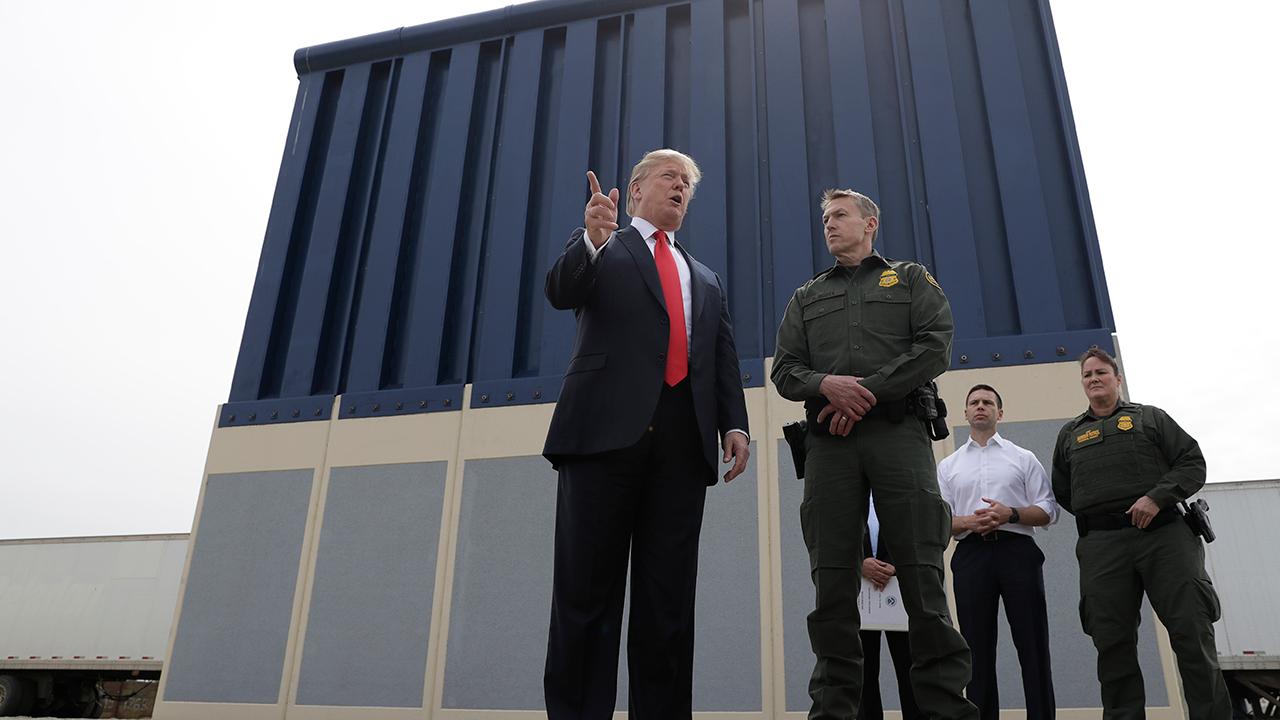Trump’s border wall could benefit Union Pacific. Here’s why.
As President Trump examines U.S.-Mexico border wall prototypes in California, one company is uniquely positioned to benefit from the possible construction of the barrier: Union Pacific, a North American railroad company.
Union Pacific is the only railroad company that serves all six major rail gateways between the U.S. and Mexico, enjoying about 70% of that cross-border rail traffic, CEO Lance Fritz told FOX Business’ Liz Claman during an interview on Tuesday.
“Virtually everything that will go into the wall is something that can be shipped on Union Pacific,” Fritz said. “We ship all kinds of building material, whether it’s steel, or rock, or cement or aluminum. We enjoy that kind of commerce.”
Trump made the border wall a lynchpin during the 2016 presidential election, promising to keep out undocumented immigrants and drugs. Although the president has repeatedly said Mexico would pay for the wall, the administration’s proposed 2019 budget allocates $18 billion toward construction fees.
Half of the eight prototypes that the president is touring are made of concrete, while the other four are comprised of different materials, including metal. All are 30 feet tall, and must extend six feet below the ground.
Currently, the entryways in the existing border wall are “safer than ever,” Fritz said, although the Omaha, Nebraska-based company takes extra precautions to ensure that no contraband is being secretly stored in the trains. That includes using gamma ray technology to look for humans or drugs and cameras to scan 3D images of every car that crosses the border.
“Perhaps a wall is required in certain locations, but hopefully, as time progresses, as we build stronger ties with Mexico and Canada, other security mechanisms can be put to use, like the continued development of the Mexican economy, the continued safety and security in Mexico, and the continued robust and rich multicultural environment that exists on the border, both in the United States and in Mexico,” he said.




















